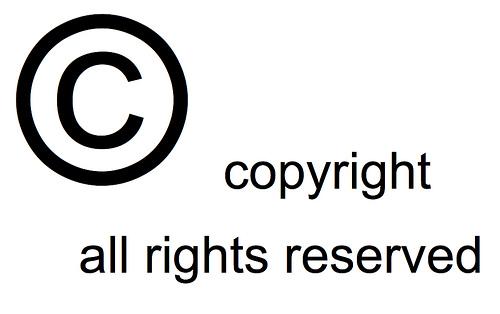
In the dynamic landscape of digital marketing, YouTube influencers have emerged as powerful advocates capable of shaping consumer behavior and brand perception. With millions tapping into their favorite creators for everything from product reviews to lifestyle tips, businesses are eager to harness this influence. However, the allure of influencer marketing is accompanied by a complex web of legal considerations that can often leave the uninitiated feeling adrift. In this article, we will unpack the essential legal elements of navigating YouTube influencer marketing, providing brands and influencers alike with the knowledge needed to traverse this fertile yet intricate terrain. From understanding disclosure requirements to managing contracts,we’ll illuminate the paths and pitfalls,ensuring a prosperous collaboration that adheres to the law while maximizing impact. Join us as we explore the legal landscape,equipping you with the tools to thrive in this vibrant digital marketplace.
Understanding Influencer Relationships and Disclosure Requirements
in today’s digital landscape, establishing genuine connections between brands and influencers extends beyond mere collaborations.Influencer relationships thrive on authenticity, where the influencer’s credibility and the brand’s reputation align to foster trust among their audiences.Brands should consider factors such as the influencer’s engagement rate, audience demographics, and content style to ensure synergy.A mutually beneficial partnership not only enhances brand visibility but also enriches the influencer’s content, leading to a more resonant messaging that appeals to viewers.
Though, with the power of influencer marketing comes a responsibility: the need for transparency. Disclosure requirements are essential to maintain trust and comply with legal regulations. Influencers must clearly communicate their partnerships with brands,typically through the use of hashtags like #ad or #sponsored. It’s vital for both parties to understand the implications of non-compliance, wich can include legal repercussions and lost credibility. Below is a quick reference on key disclosure practices:
| Disclosure Practice | Description |
|---|---|
| Clear Communication | always disclose paid partnerships prominently. |
| Consistent Use of Hashtags | Utilize recognized hashtags like #ad or #sponsored in all posts. |
| Avoid Misleading Statements | Be upfront about any incentives received for promoting products. |
| Platform-Specific Guidelines | Familiarize with each platform’s specific advertising policies. |

Crafting Effective Contracts for Influencer Partnerships
Creating contracts for influencer partnerships requires careful consideration of various elements to ensure clarity and mutual benefit. First and foremost,it’s essential to define the scope of work precisely. This includes outlining what types of content the influencer will create,the platforms where it will be shared,and the timeline for deliverables. Additionally, stipulating the compensation structure—whether it’s a flat fee, commission, or product exchange—can prevent misunderstandings down the line. Other vital details might include provisions for revisions, adherence to brand guidelines, and any exclusivity agreements that prevent the influencer from promoting competing products during the partnership.
Moreover, the legal language within the contract should cover intellectual property rights to clarify ownership of the content created. it is prudent to include clauses about disclosure requirements,ensuring compliance with regulations such as the FTC guidelines. considerations for performance metrics, such as engagement rates and shares, can also be valuable for future collaborations. To make the contract more user-pleasant, it might be helpful to draft it using clear and simple language. Below is a basic structure of what the contract might entail:
| Contract Element | Description |
|---|---|
| Scope of Work | Details on content types, platforms, and timelines |
| Compensation | Flat fee, product exchange, or commission model |
| Intellectual Property | Ownership rights of created content |
| Disclosure | Regulations to comply with product endorsements |
| Performance Metrics | Criteria for assessing engagement and success |

Navigating Copyright and Fair Use in Influencer Marketing
in the realm of influencer marketing, particularly on platforms like YouTube, understanding how to balance creativity with legal obligations is essential. copyright is a basic concept that protects original works, such as music, video clips, and graphics. When influencers create content, they must ensure that they either own the rights to the work they’re using, secure permission from the copyright holder, or rely on public domain or stock resources that are available for commercial use. Failure to respect these rights can lead to takedown notices, monetization issues, or even legal action. it’s essential for influencers and brands to develop a robust strategy that includes thorough research into the content they wish to incorporate.
On the flip side, fair use provides a degree of flexibility, allowing for the limited use of copyrighted material without requiring explicit permission under certain conditions. This can include commentary, criticism, or educational purposes. However, determining whether a specific use qualifies as fair use depends on several factors, including:
| Factor | Description |
|---|---|
| purpose | Commercial vs.educational or transformative use |
| Nature | Type of work being used (e.g., factual vs. creative) |
| Amount | Quantity of the work used relative to the original |
| Effect | Impact of use on the market value of the original |
By carefully considering these factors, influencers can more confidently navigate the landscape of copyright and fair use. Keeping abreast of legal standards can safeguard both creativity and integrity in content creation, ultimately benefiting both influencers and brands in their marketing endeavors.

Mitigating Legal Risks: Best Practices for Brands and Influencers
In the dynamic world of YouTube influencer marketing, both brands and influencers must navigate a complex legal landscape to mitigate potential risks. Transparency is key; all partnerships should be disclosed in a way that is easy for viewers to understand. This includes using clear language and adhering to platform guidelines. additionally,brands and influencers should ensure that any claims made in their content are substantiated and compliant with advertising standards. By fostering open communication and setting clear expectations from the outset, parties can proactively prevent misunderstandings that might lead to disputes.
Another effective strategy involves contractual agreements that outline the roles, responsibilities, and expectations of both brands and influencers.These agreements should address key elements such as content ownership, payment terms, and content approval processes. To streamline this, here is a simple table to guide the essential components of a strong influencer contract:
| Contract Component | Description |
|---|---|
| Scope of Work | Details the type and number of deliverables expected. |
| Payment Terms | Specifies amount, payment method, and schedule. |
| Intellectual Property | clarifies ownership and usage rights of content. |
| Disclosure Requirements | outlines the necessary disclaimers and disclosures. |
By implementing these practices, brands and influencers can ensure they are protecting themselves against potential legal hazards while building a more effective partnership.
Wrapping Up
In the ever-evolving realm of digital marketing, YouTube influencers are not just trendsetters; they are pivotal architects of brand narratives. As we’ve explored, navigating the complex landscape of influencer partnerships requires more than just creative synergy—it demands a keen understanding of the legal essentials that govern these relationships.By mastering the nuances of contracts,disclosures,and copyright laws,brands can foster authentic connections with their audiences while safeguarding their interests.
As the lines between customary advertising and influencer marketing continue to blur, staying informed and compliant will be your strongest assets. So, whether you’re a budding brand or a seasoned marketer, embracing these legal insights will not only enhance your influencer campaigns but also build a foundation of trust and integrity in your interactions.With the right knowledge and tools at your disposal, you can confidently chart your course through the vibrant waters of YouTube marketing. Here’s to forging meaningful partnerships that resonate, inspire, and thrive in the digital age.